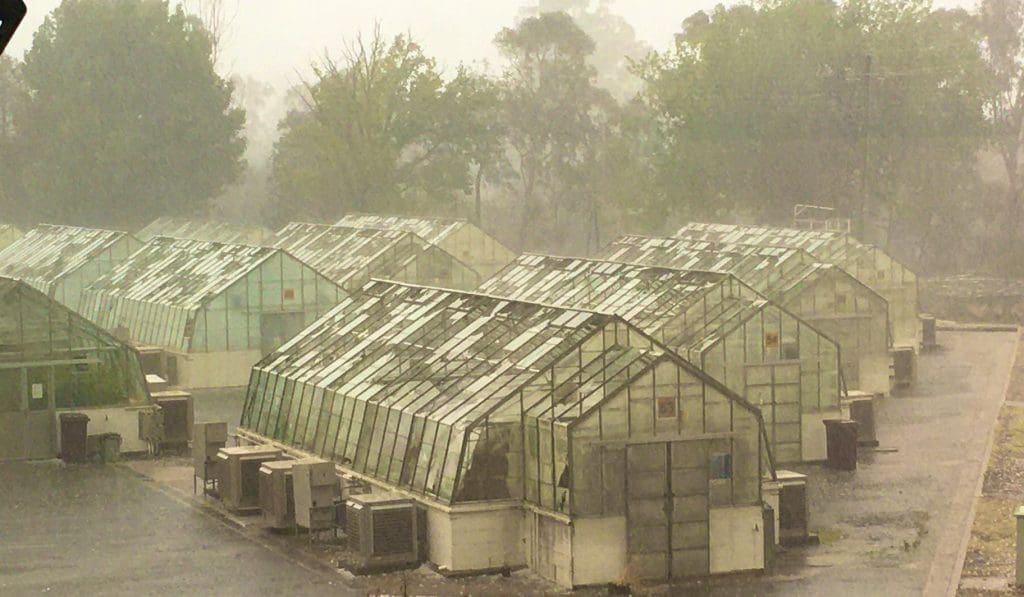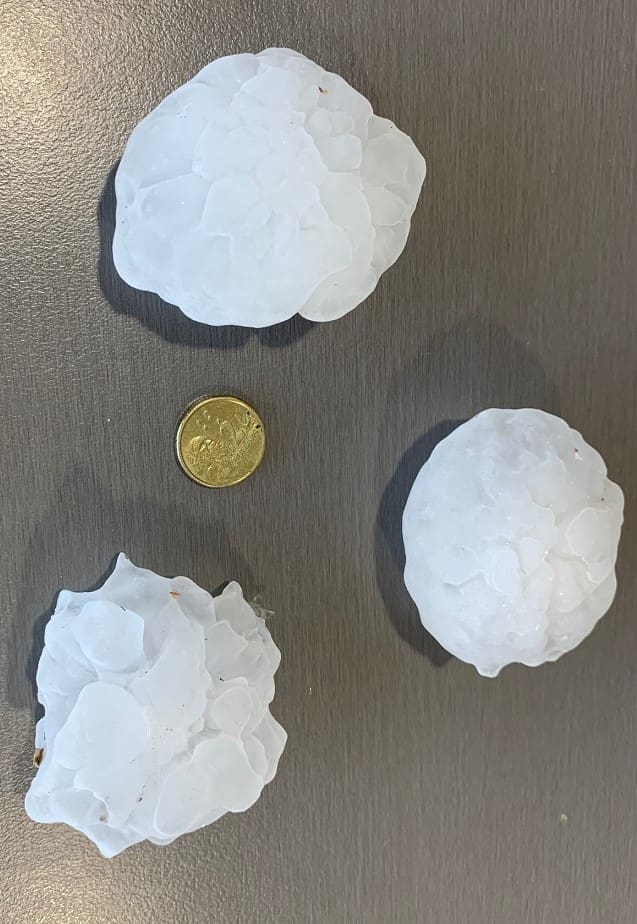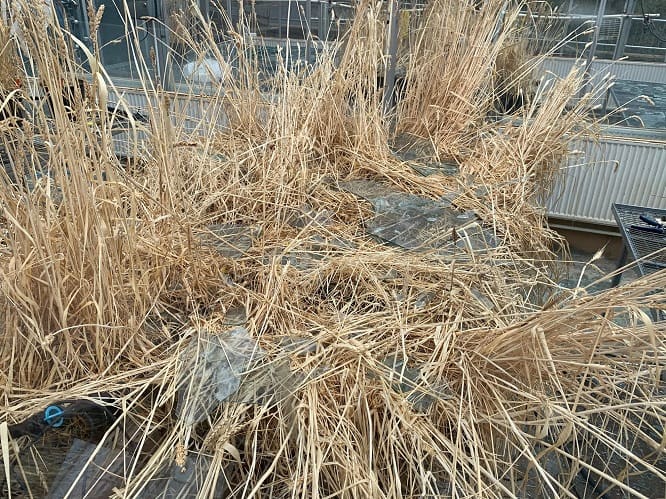
Sixty-three glass houses at CSIRO’s Black Mountain were smashed by a massive hail storm that hit on Monday.
A MASSIVE ‘super cell’ hail storm that hit Canberra on Monday destroyed 63 glass houses at the CSIRO’s Black Mountain centre, wrecking important plant trials and setting back crop research programs by 12 months or more.
Cricket ball-sized aggregated clumps of hail shattered glass house panels, smashed car windscreens and stripped trees of leaves in a 300 to 400-metre-wide strip that cut across the CSIRO facility, the adjoining Australian National University (ANU) and moved on to the Parliamentary triangle.
CSIRO chief research scientist, Greg Rebetzke, said in the 25 years he had been involved in research he had only seen one glass house pane broken in storms, and never anything like the extent of damage to so many glass houses that occurred in last Monday’s “catastrophic” storm.

CSIRO glass houes at Black Mountain in Canberra were hit by massed clumps of cricket ball-sized hail.
“It impacted plant science research into rust resistance, drought tolerance, high temperature tolerance, frost genetics on wheat, barley and canola, but also impacted cotton research and the national orchid collection,” he said.
“Also damaged was CSIRO’s quarantine glass houses and OGTR (Office of the Gene Technology Regulator) GM glass houses.”
Dr Rebetzke said the initial priority was to ensure the quarantine and GM glass houses were contained before turning attention to working through all the other glass houses to see what could be saved, but gaining safe access was an issue.
“Basically, the glass houses are too dangerous to access at the moment because there are shards of glass everywhere. We are taking a very pro-active approach to protecting staff,” he said.
“What that means is there is zero access and the birds are enjoying some amazing genetic material. There is not a lot of food about because it has been such a dry year, so suddenly they’ve found a ‘feeding nursery’.”
Dr Rebetzke said, fortunately, scientists had learnt from the incursion of wheat streak mosaic virus back in 2003 that backup systems needed to be in place.
“What we learnt is that it is absolutely critical that when you have a glass house experiment anything can happen, so it is absolutely critical you have backups,” he said.
“I think 98 per cent of staff have the capacity, when we have glass houses back on line in six months or so, to go into the seed stores and plant again.”
Dr Rebetzke said the damage from Monday’s storm was so extensive the majority of the research programs would be put back 12 to 18 months.

Greg Rebetzke
“The people most affected will be the students and post-docs who have limited terms of three to five years. They will have lost 12 months,” he said.
“CSIRO has the storage of seed. They are looking now at alternate glass house facilities to help the short term people.”
Dr Rebetzke said in terms of his own work, he had had four glass houses full of mature plants ready for harvest and sowing for next year.
“I had about 6000 long coleoptile and weed competitive long season wheats ready to go out to field nurseries in mid-April. Unfortunately, that will be delayed until next year. It is heartbreaking, but the main thing is it is recoverable,” he said.
“It was devastating when it first happened to me with wheat streak mosaic virus, but the learnings from that have been invaluable. To be frank, since that incursion in 2003 we have had 15 good years without a hitch.”
Dr Rebetzke said the Grains Research and Development Corporation (GRDC) and other stakeholders were very concerned and supportive. He was in discussions with them to see what could be done to ensure CSIRO could deliver on its projects.

Shards of glass and twisted cereal trial plants litter the hail-damaged glass houses at CSIRO’s Black Mountain research facility.
Grain Central: Get our free daily cropping news straight to your inbox – Click here

HAVE YOUR SAY